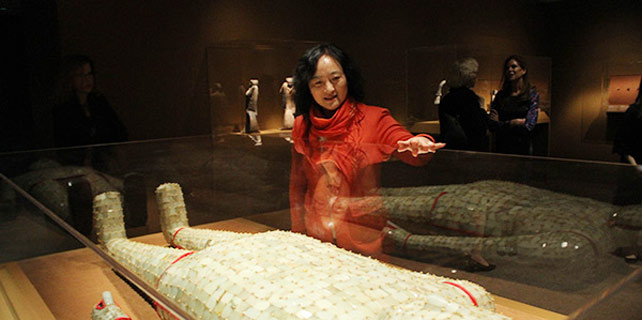China's mixed-ownership reform making progress
 |
|
Employees of a power supply company in Weining county, Guizhou province, check power transmission facilities. [Photo/Xinhua] |
BEIJING - China's mixed-ownership reform in centrally administered State-owned enterprises has made steady progress, the country's top economic planner said Wednesday.
Two groups of about 20 central SOEs have piloted the mixed-ownership reform plan and made smooth progress, the National Development and Reform Commission (NDRC) said.
"The scope of the third group of central SOEs chosen to conduct the reform will expand, and priority will be given to enterprises in provincial-level regions," according to an online NDRC statement. "Mixed-ownership reform, conducted through diversifying the shareholding structure of SOEs, is an ice breaker for overall SOE reform."
The reform includes bringing in multiple types of investors to central SOEs, exploring flexible and market-based salary systems and selling shares to SOE employees.
The reform has taken substantial steps in electricity, oil, natural gas, railway, civil aviation, telecommunications and military industries.
China has 102 central SOEs, which manage the bulk of the country's state assets. But their monopolies in many sectors shut out smaller market entities and lead to low efficiency and poor service.
Mixed-ownership reform appears to be the most significant means to improve the efficiency of central SOEs.
The companies saw their combined profits and revenues both return to growth in 2016. Total profits climbed 0.5 percent year on year to 1.23 trillion yuan ($179 billion), while revenues rose 2.6 percent to 23.4 trillion yuan.









